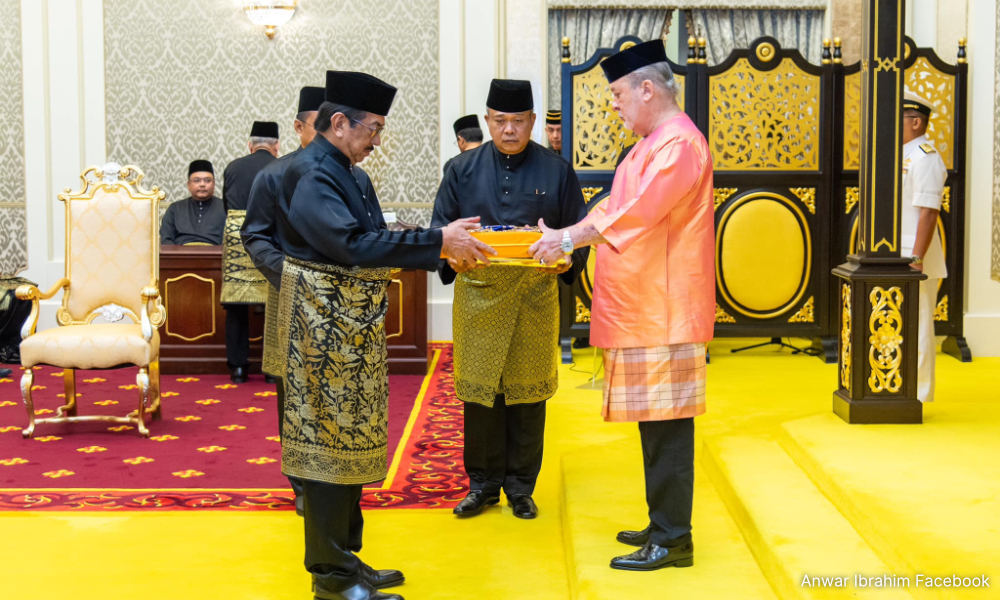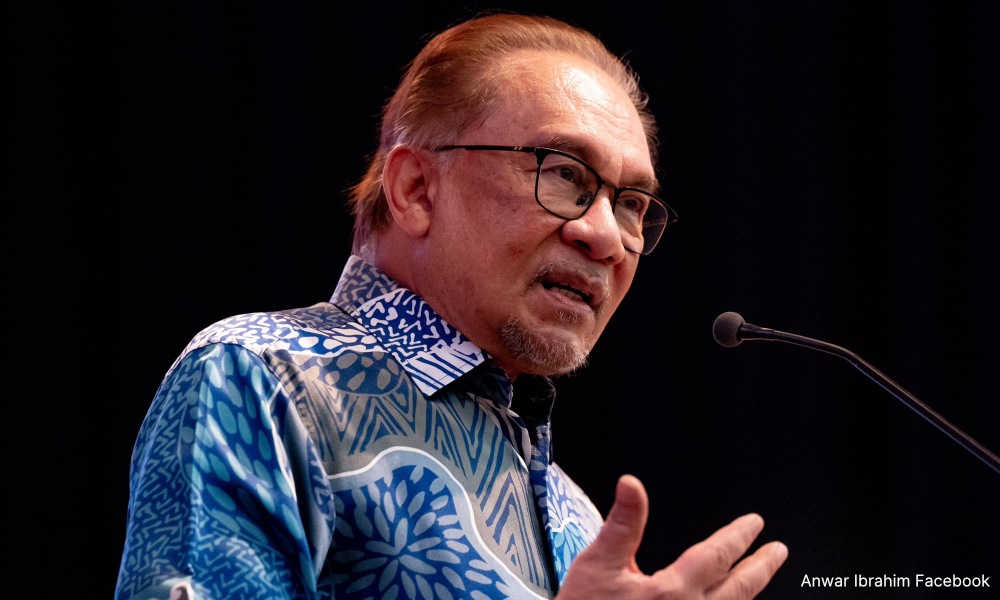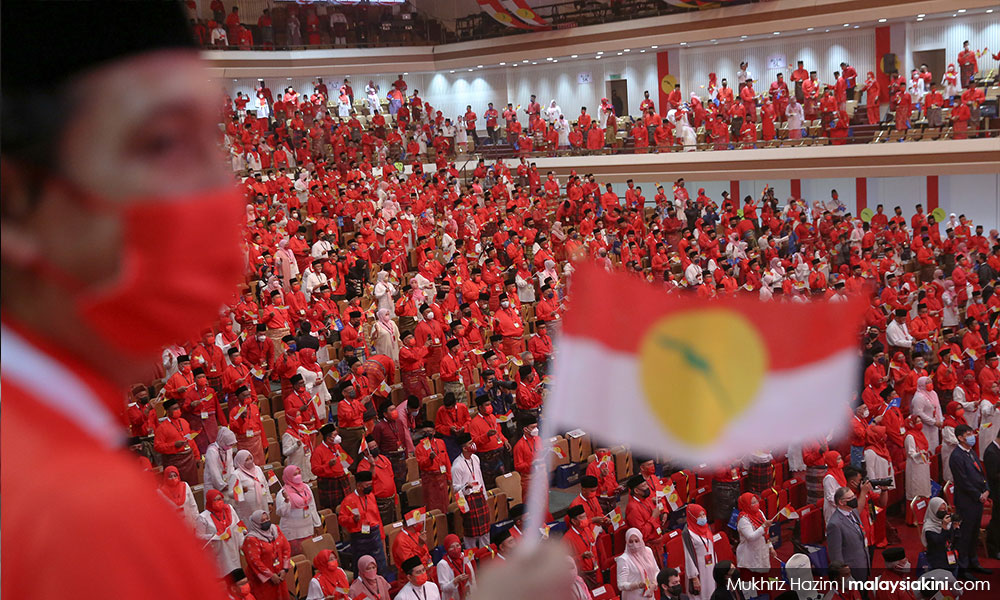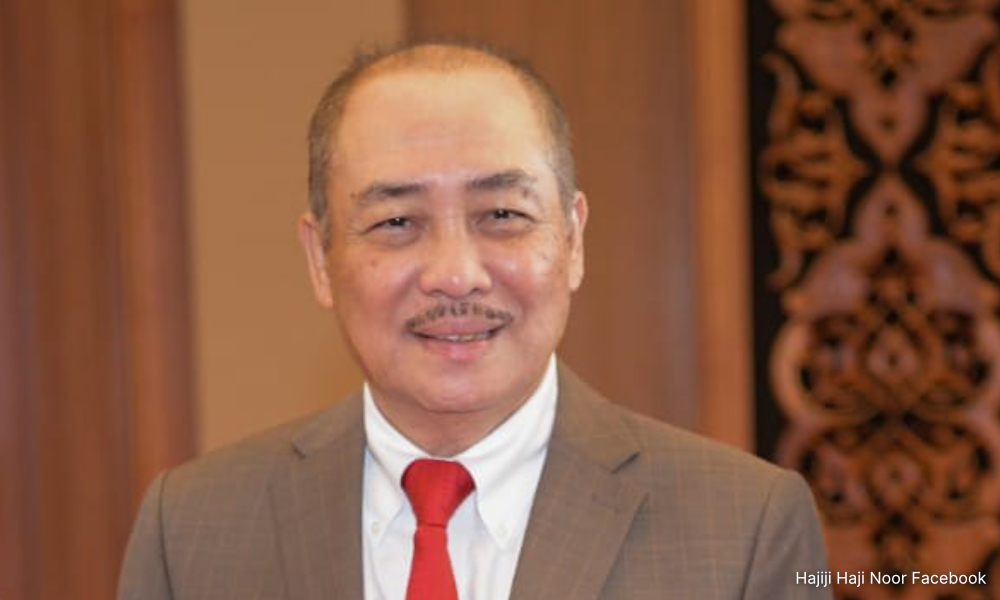For months, there has been speculation that Musa Aman will be appointed as Sabah’s 11th governor.
This week, it became official; Sabah’s longest-serving chief minister ousted from power through elections in 2018, charged with corruption tied to timber concessions that year and freed of the 46 charges in 2020, will now occupy Istana Seri Kinabalu come January.
Strong reactions
Initial reactions have been emotive. On-the-ground responses in Sabah have varied - from anger and outrage to disappointment, frustration, resignation and relief.
Out of the five chief ministers in Sabah who have been governors, this is the first one where there have been open protests and opposition. Musa’s 15-year tenure as chief minister ended in controversy, with his removal from office a key election issue in the 2018 campaign.
Some are happy Musa has been returned to power. A cohort of elites tied to him and his patronage network are cheering, as his appointment is perceived as empowering those displaced and reaffirming political control of a network of families that have traditionally dominated Sabah’s political economy.
This appointment is perceived as restoring established political elites back into power.
Musa also has the ability to garner grassroots support, as shown by the crowd that welcomed him at Kota Kinabalu airport this week.

For most ordinary Sabahans, however, especially outside of the capital Kota Kinabalu, there is little reaction. The focus is on eking out a living in an era of higher cost of living. Concerns about a lack of proper water and electricity supply in Sabah are especially salient.
Retro politics?
The appointment draws attention to Sabah’s complex and fluid politics. Questions are being raised about how the appointment will impact the balance of power in Sabah, the fortunes of individual leaders/parties and the priorities of the government.
These issues are heightened by the recent and lingering prominent corruption scandal involving mining contracts and current leaders in the Sabah government (exposed by Malaysiakini) and the prospect of a state election that has to be called before the end of October next year.
Importantly, campaigning has effectively started, with the appointment of Musa already shaping political narratives.
Many are asking whether the restoration of Musa to power will return Sabah to its past - to a time when federal power was stronger, Umno was more dominant with political parties less fragmented and there was more centralisation of power.
In this two-part analysis, I look at factors around Musa’s appointment (part 1) and new dynamics in Sabah politics (part 2).
Musa may be seen as a figure from the political past, bringing with him old practices and expectations, but conditions among elites and on the ground have changed from when he was elected out of office.
It remains to be seen whether the restoration of Musa to political power will revive the past. As with all retro fashions, some items come back, and others do not.
A new position
Let me start with two observations about the appointment.
First, it is important to acknowledge that Musa’s governor position is fundamentally different from his previous role as chief minister. It is more ceremonial. Yet, a trend in Malaysian politics is that ceremonial roles have become more powerful.
Musa takes on this position at a time when he can play a more prominent role. In Sabah, where politics is highly fragmented, the governor has played a role in shaping who will govern, especially after elections. Expectations are that the position will transform well beyond the traditional duties.
Musa brings to this position a history of being an important figure in Sabah’s economy and a powerful political network. As he did as chief minister, he is likely to make the position his own rather than have the position define him.
Anwar blamed
Second, when the appointment was made, there was an effort by those in the federal government to distance themselves from the appointment, pointing to the formal constitutional process for the selection of Sabah’s governor.
Malaysian politics has long never been about what is on paper but rather than what is in practice. There have been ongoing lobbying and discussions about the appointment for months. Senior state appointments are traditionally discussed with the federal leadership, a practice for decades.
What matters in politics is perception, however. In Sabah, Anwar Ibrahim is seen as supporting the appointment. Photos of the swearing-in ceremony, including with Sabah Pakatan Harapan leaders, are reinforcing these views. For those who see the appointment negatively, the prime minister is the one receiving ire.

There were many options to choose for the position, and that Musa was chosen inevitably reflects on the Madani government and is being tied to criticisms about the handling of corruption.
This comes after Sabahans voted for Anwar’s leadership in 2022, with the Anwar factor positively impacting results in multiple close races in the last general election. For some Sabahans, there is a sense of betrayal with the appointment.
Greater challenge for opposition
The implications of the Musa restoration are likely to evolve over the next four years.
Three implications, however, are already clear.
The appointment of Musa both strengthens and weakens the opposition. Foremost, it gives Sabah’s state opposition, led by Warisan and former chief minister Shafie Apdal, an issue for political mobilisation.
Recall, that it was sentiments about Musa that impacted the 2018 election that brought Warisan into government, then allied with Harapan.
At the same time, Warisan will need to win more seats in the coming election to secure power. The party - and its potential allies - will need to win over a convincing majority, one which cannot be broken through defections, to win back power.
Minimally, this is 37 seats. Warisan (Plus) won 23 seats in 2020 and currently holds only 14 seats, so it faces an uphill task.
Securing federal power
The Musa appointment is simultaneously perceived as a strengthening of federal power. While in office, Musa was seen as a pro-federal chief minister. He was the local warlord leader of Umno.

Importantly, this was a time when it was expected for Sabah to be pro-federal. Sabah, compared to Sarawak, is more financially dependent on the federal government for resources.
Yet, conditions and sentiments in Sabah today are not the same. Views of Umno have changed, although Sabah is one of the states nationally where Umno is strongest. Among Umno supporters, there is the expectation that the Musa appointment will lead to a strengthening of Umno within Sabah.
Among Sabahans, the most salient political emotions involve federal-state relations. Anti-federal sentiment is the strongest it has ever been in Sabah, echoing the time of the mid-1980s. Demands for autonomy are real and there is an expectation of deliverables on these demands.
Sabahans are more aware of the history of federal involvement in Sabah’s affairs and see the actions of peninsula politicians/bureaucrats with greater suspicion.
The appointment is already feeding anti-federal resentments and will likely feed them further if autonomy deliverables are not increased.
Building the Madani cartel
Finally, Sabah is the next testing ground for the consolidation of the Madani cartel - the alliance of different coalition parties in the Anwar government. What is especially important in this arrangement in Sabah is cooperation between Umno/BN and Pakatan Harapan.
Musa’s history in Umno, his vast political network/resources and record of political stability in Sabah are seen to advantage a strengthening of this core political alliance.
It is not yet clear whose fortunes within the Sabah government and parties will rise (or fall). Multiple factors will impact this, not least of which are potential prosecutions (or not) on the mining corruption case as well as ongoing discussions about alliance relationships, leadership and seat negotiations. Eyes are already on the coming polls.
Where Gagasan Rakyat Sabah (Gagasan) or Chief Minister Hajiji Noor’s party/leadership stands in this future cartel arrangement is particularly uncertain.

Perhaps the most transparent factor is that Warisan - led by Musa’s traditional political rival Shafie - is the opposition to the Madani cartel at the state level - at least for now.
Equally evident is that resources and patronage in Sabah will continue to dominate the political economy, irrespective of who is in office and that Sabahans will continue to wrestle with serious gaps in governance.
Bad retro designs, sadly, often never go out of fashion.
Testing times
Minimally, the Musa appointment has sent shocks through the political system, even with this being a possibility for some time. Questions of whether old resentments and competition among leaders can be put aside arise.
There are some who hope that Musa’s second chance will offer him an opportunity for redemption, but there are different views of what that redemption should entail.
Cynicism runs deep, but Sabahans are among the most optimistic Malaysians. Everyone is waiting to see how Musa and other leaders will fulfil their roles.
Sabah politics remains highly dynamic, as it has since Musa was elected out of power five years ago. Sabah is arguably the most democratic state in the country.
Musa’s appointment has added to this dynamism, but it will be a test ahead whether the democratic space carved out over the last five years will remain. - Mkini
Part 2 will focus on factors shaping Sabah’s democratic politics.
BRIDGET WELSH is an honourary research associate of the University of Nottingham’s Asia Research Institute, a senior research associate at Hu Fu Center for East Asia Democratic Studies, and a senior associate fellow at The Habibie Centre. Her writings can be found at bridgetwelsh.com.
The views expressed here are those of the author/contributor and do not necessarily represent the views of MMKtT.




No comments:
Post a Comment
Note: Only a member of this blog may post a comment.